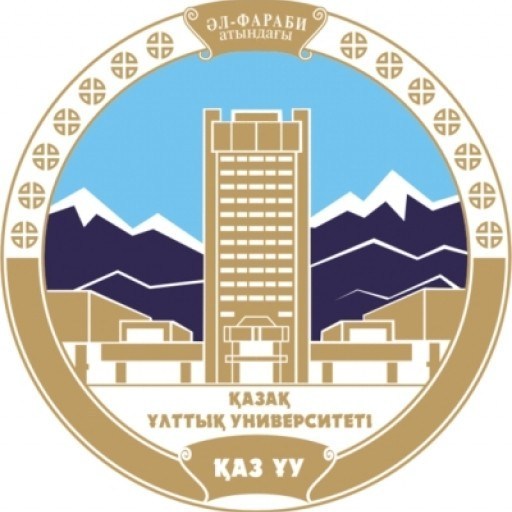Photos of university
Automation and Control is a comprehensive undergraduate program offered by Al-Farabi Kazakh National University, designed to prepare specialists capable of developing, implementing, and managing automation systems in various industries. The program covers fundamental and applied disciplines that equip students with theoretical knowledge and practical skills necessary for the design, analysis, and maintenance of automation equipment, control systems, and industrial processes. Students gain proficiency in areas such as electrical engineering, control theory, computer science, and robotics, enabling them to develop innovative solutions for complex real-world problems. The curriculum includes coursework in instrumentation, programmable logic controllers (PLCs), embedded systems, sensors, actuators, data acquisition, and process control. Emphasis is placed on the application of modern software tools and hardware components to optimize industrial productivity, ensure safety, and improve energy efficiency. Throughout their studies, students engage in laboratory work, project development, and internship activities that foster hands-on experience and industry readiness. The program aims to cultivate analytical thinking, problem-solving abilities, and teamwork skills, preparing graduates for careers in manufacturing, energy, transportation, and other technical sectors. Graduates of the Automation and Control program are equipped to work as automation engineers, control systems designers, maintenance specialists, or researchers, contributing to technological advancements and sustainable development. The university’s partnership with industry leaders and access to state-of-the-art laboratories ensure that students are well-prepared to meet the challenges of modern automation technologies. Upon graduation, students receive a Bachelor's degree in Automation and Control, opening pathways to further education or employment in a rapidly evolving technological landscape.
Profile disciplines:
• Theoretical Foundations of Electrical Engineering
• Electronics
• Optimization Methods
• Operations Research
• Calculus of variations
• Probability Theory and Mathematical Statistics
• Information Technologies for professional purposes
• Languages and technology of programming
• Object-Oriented programming
• Modeling and identification of objects of control
• Software simulation systems
• Optimal control systems
• Optimal control of technological processes
• Elements and devices of automation
• Local automation systems
• Artificially intelligence techniques in control
• Automation of standard processes and production
Program requirements for the Bachelor's degree in Automation and Control at Al-Farabi Kazakh National University include a combination of academic prerequisites, language proficiency, and specific skills. Applicants must have completed secondary education with a strong emphasis on mathematics, physics, and technology-related subjects. A solid foundation in mathematics is essential, as courses involve complex problem-solving, mathematical modeling, and control system analysis. Physics knowledge supports understanding of automation mechanisms and sensor operations. Prospective students should demonstrate proficiency in the Kazakh or Russian languages; however, English language skills are highly valued, and some programs may require passing an English language proficiency test such as IELTS or TOEFL to ensure students can comprehend technical materials and participate in international research collaborations.
Prior experience or coursework in general engineering, computer science, or information technology can be advantageous but is not mandatory. Basic programming skills, particularly in languages such as C, C++, or Python, are recommended because the curriculum involves developing control algorithms and automation software. Familiarity with electronic circuits and hardware components may also be beneficial for hands-on laboratory work.
Applicants must submit their high school diploma or equivalent certification, along with transcripts highlighting relevant coursework. Additionally, they may need to undergo an entrance examination or interview that assesses their knowledge in mathematics, physics, and logic. For international students, validation of educational credentials through an authorized agency may be required, along with proof of language proficiency.
Health and safety requirements include passing a medical examination to ensure general fitness for demanding laboratory and practical work. Candidates should also exhibit qualities such as problem-solving ability, analytical thinking, teamwork, and motivation for engineering innovation. The program encourages applicants to demonstrate a keen interest in automation systems, robotics, control engineering, and related fields, which can be evidenced through participation in extracurricular activities, projects, or internships.
Overall, these requirements aim to admit motivated, capable students prepared to undertake rigorous technical study and contribute to automation and control engineering advancements.
The financing of the "Automation and Control" programme at Al-Farabi Kazakh National University is primarily supported through a combination of state-funded allocations and tuition fees paid by students. The state-funded places are allocated based on governmental educational policies aimed at promoting engineering and technical disciplines aligned with national development priorities. These places are intended for students who meet the competitive admission criteria, including high academic performance and relevant examinations results.
Tuition fees for international and tuition-paying domestic students are determined annually and are set to reflect the cost of delivering high-quality education, including laboratory work, software licenses, and instructor remuneration. The university offers various scholarship programs and financial aid options to assist students in financing their studies. These include merit-based scholarships awarded based on academic achievements, social scholarships for students from disadvantaged backgrounds, and special grants for talented students involved in research projects or extracurricular activities.
In addition, external funding sources contribute to the financial stability of the programme. These include partnerships with industry and government agencies, which may provide grants and sponsorships for research, internships, and student competitions. The university also actively seeks grants from national and international organizations to fund specific research initiatives related to automation and control systems.
Students are encouraged to explore part-time work opportunities within the university or through related industries to support their education costs while gaining practical experience. The university’s financial policy emphasizes transparency and accessibility, ensuring students from diverse socioeconomic backgrounds have opportunities to pursue their education in automation and control engineering.
Overall, the program's financing structure is designed to ensure sustainable support for both academic and research activities, promote equal opportunities, and foster innovation in automation and control technologies.
The Automation and Control program at Al-Farabi Kazakh National University is designed to prepare highly qualified specialists in the field of automation, control systems, and instrumentation engineering. This program aims to equip students with comprehensive knowledge and practical skills necessary to design, implement, and maintain modern automation systems used in various industries such as manufacturing, energy, transportation, and information technology. The curriculum covers fundamental subjects including electrical engineering, control theory, electronics, computer science, and robotics, as well as specialized courses in automation systems, industrial control, sensors and actuators, and process control. Students gain experience through laboratory work, project development, and internships in technologically advanced enterprises, which enhances their practical understanding and readiness for the workforce. The program emphasizes the integration of theoretical knowledge with applied engineering practices, fostering innovation and problem-solving abilities. Graduates of this program are prepared for careers in designing control systems, automation of industrial processes, and development of intelligent systems, participating actively in the digital transformation processes across different sectors. Additionally, the university promotes research activities in automation technologies, encouraging students to engage in scientific projects and innovations under the supervision of experienced faculty members. Alumni of the program are employed in leading industries, research institutions, and technology companies, where they contribute to the development of cutting-edge automation solutions. With the rapid advancement of technology and increasing demand for automation experts worldwide, this program offers a solid foundation for students aspiring to become engineers, system integrators, or project managers in automation and control engineering fields. The university’s facilities include modern laboratories, simulation tools, and software for automation design and testing, providing students with a conducive environment for learning and experimentation. Overall, the Automation and Control program at Al-Farabi Kazakh National University is committed to delivering high-quality education aligned with industry standards, fostering innovation, and preparing students to lead in the evolving landscape of automation technologies.








